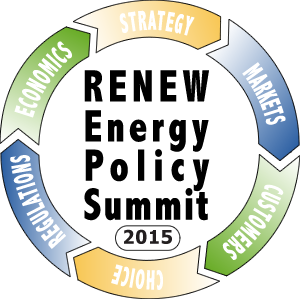
by jboullion | Jan 5, 2015 | Uncategorized
 For immediate release
For immediate release
January 5, 2015
More information
Tyler Huebner, Executive Director
608.255.4044
tyler.huebner@renewwisconsin.org
Renewable Projects Selected for RENEW’s 2014 Honor Roll
Newest Wisconsin Generators Powered by Water, Cow Manure, and the Sun
(Madison) – At its fourth annual Energy Policy Summit, RENEW Wisconsin will recognize the largest, and the most innovative, renewable generation projects built in Wisconsin in 2014. Titled “Unlocking the Clean Energy Transition,” RENEW’s summit will take place January 9, 2015, at UW-Madison’s Union South.
The 16 clean energy projects inducted into RENEW’s Honor Roll added 5.92 megawatts (MW) of new generating capacity in Wisconsin. Of that total, the two hydropower projects–Badger Hydro and Angelo Dam–account for slightly more than 3 MW. In the biogas category, Gundersen Health System recently energized its 600-kilowatt Sunny Side Digester installation northeast of Sun Prairie.
The other 13 generators, accounting for 2.27 MW, are solar powered. Many of the solar projects fit the definition of Community Solar, either involving a single array sponsored by customer subscriptions (a/k/a solar gardens) or a single contractor installing solar electric systems in a particular neighborhood.
Combined, the projects will provide enough electricity to power the equivalent usage of about 2,600 Wisconsin homes.
Perhaps representative of a shift in attitudes on distributed renewable generation, two of the projects to be highlighted are owned by electric providers. One project, Kaukauna Utilities’ Badger Hydro, involved reconstructing and upgrading an existing unit, resulting in a generating capacity increase of nearly 3 MW. Barron Electric Cooperative owns its 100 kW solar garden outright.
In addition, electric providers sponsored the construction of four solar gardens in Wisconsin, three of which—Vernon, St. Croix, and Barron–are supported by self-selecting customers. In exchange for their up-front contributions to the array, these customers receive a credit on their monthly bills. Over the course of their subscription period, typically 15 years long, these customers should receive a financial return in the neighborhood of 4%.
In addition to the utility-sponsored solar gardens, this year’s Honor Roll includes two neighborhood-based Community Solar initiatives organized by a single installer. In Black River Falls, Ho-Chunk Nation supplied 45 solar electric systems installed by PV Systems, Inc., and serving residential households, while in the Bay View neighborhood in Milwaukee, Arch Electric energized 38 individually owned solar electric systems there.
Also to be honored are eight solar installations serving manufacturers, faith communities, a brewery, an airport maintenance facility and a public museum.
“The Energy Policy Summit is a fitting venue to honor the people and organizations that embraced the vision of energy self-sufficiency and job creation, and brought these ideas to fruition,” said RENEW Wisconsin’s Executive Director Tyler Huebner.
“Their solar, hydro, and bioenergy installations created jobs, reduced the flow of imported fossil fuels into Wisconsin, and demonstrated responsible environmental stewardship. They truly deserve the recognition, as well as everyone’s appreciation,” Huebner said.
A list of the projects that earned a spot on RENEW’s 2014 Honor Roll appears on page 3.
For more information on the 2015 program agenda, speakers, and registration, please visit:
http://www.renewwisconsin.org/2015_Summit/
-END-
RENEW Wisconsin leads and accelerates the transformation to Wisconsin’s renewable energy future through advocacy, education, and collaboration. More information on RENEW’s Web site at www.renewwisconsin.org.
Distributed
Renewable Generation in Wisconsin
RENEW Wisconsin – 2014
Honor Roll
|
Biogas
|
|
Installation
|
Owner
|
County
of Location
|
Capacity
(in kW)
|
Installer/
Contractor
|
|
Sunny
Side Biodigester
|
Gundersen
Health Systems
|
Dane
|
600
|
U.S.
Biogas
|
|
Hydro
|
|
Badger
|
Kaukauna
Utilities
|
Outagamie
|
7,000
(2,800 new)
|
Boldt
Construction
|
|
Angelo
Dam
|
Western
Technical College
|
Monroe
|
205
|
Lunda
Construction
|
|
Solar
– Utility
|
|
Dairyland
Power Cooperative
|
Clean
Energy Collective
|
Vernon
|
517
|
Vernon
Electric
|
|
Solar
– Community
|
|
Vernon
Electric Cooperative
|
Clean
Energy Collective
|
Vernon
|
305
|
Vernon
Electric
|
|
Ho-Chunk
Nation (Black River Falls)
|
Ho-Chunk
Nation
|
Jackson
|
158
(45 systems)
|
PV
Systems, Inc.
|
|
Bay
View Neighborhood (MKE Shines)
|
Bay
View homeowners
|
Milwaukee
|
136
(38 systems)
|
Arch
Electric
|
|
St.
Croix Electric Cooperative
|
NRCO
|
St.
Croix
|
103
|
|
|
Barron
Electric Cooperative
|
Barron
Electric
|
Barron
|
100
|
Carr
Creek
|
|
Solar
– Customer-Owned
|
|
AMI
|
Brown
|
175
|
Eland
Electric
|
|
Holy
Wisdom Monastery
Benedictine
Women of Madison
|
Dane
|
145
(125 new)
|
H&H
Solar
|
|
Griffin
Industries
|
Brown
|
113
|
Eland
Electric
|
|
Astro
Industries
|
Brown
|
113
|
Eland
Electric
|
|
Sisters
of St. Francis of the Holy Cross
|
Brown
|
112
|
Eland
Electric
|
|
Dane
County Regional Airport
|
Dane
|
100
|
Energy
Concepts
|
|
Ale
Asylum
|
Dane
|
100
|
SunPeak
|
|
Milwaukee
Public Museum
|
Milwaukee
|
98
|
Convergence
Energy/Arch Electric
|
by jboullion | Aug 28, 2014 | Uncategorized
Experts find no evidence to support proposal
Press Release from RENEW Wisconsin and Environmental Law & Policy Center
August 28, 2014
MADISON, WI – Expert witnesses criticized We Energies’ proposals to raise “fixed” charges for everyone and add fees and restrictions to customers that wish to generate clean, renewable energy on their own property, in testimony filed Thursday with the Public Service Commission of Wisconsin.
Experts for RENEW Wisconsin and the Environmental Law & Policy Center determined that We Energies’ proposed billing changes are unjustified, would reduce all customers’ ability to control their electricity bills, and would stifle the growth of energy efficiency and renewable energy.
Karl Rábago of Rábago Energy, LLC called the proposal “an astounding failure of basic ratemaking” and determined that the Company provided “no reasonable justification” for imposing charges on their customers.
Michael Vickerman of RENEW Wisconsin concluded the proposal would cripple the solar industry in Wisconsin, and would reduce a customer’s return from a new solar system by more than one-third (35%) and slash savings from an existing system by nearly one-half (47%).
Brad Klein, senior attorney at the Environmental Law & Policy Center, called the proposal a dangerous precedent. “We Energies is attempting to exert its monopoly power to restrict customer choice and take money out of the pockets of customers who use less energy.”
Tyler Huebner, executive director of RENEW Wisconsin said, “We Energies’ proposals, if approved, would punish customers who have done the right thing by going solar, and take away jobs for the small businesses that make a living in this industry which has grown nationally to over 140,000 employees through 2013.”
The new charges and service restrictions contemplated by We Energies include:
§ Increasing monthly fixed charges by more than 75%, which would disproportionately affect customers that use less energy (see “Robin Hood in Reverse” release)
§ Adding a new “capacity demand” charge that alone will offset nearly 30% of a customer’s savings from solar
§ Paying solar generators just 4.2 cents for each extra kilowatt-hour of electricity they create, while re-selling that electricity to other customers at up to 28 cents during peak daytime summer hours
§ Restricting solar energy financing options that help low-income customers, municipalities, churches and non-profits more affordably go solar
The expert witnesses’ main recommendations were to reject the utility’s proposals. “A broader discussion is needed to enable us to ‘look before we leap’ – to carefully examine both the benefits and costs of customers producing their own clean power before simply accepting this utility’s view,” said Huebner.
More information:
· RENEW Wisconsin’s testimony in this We Energies case can be found at the Public Service Commission’s website, http://psc.wi.gov/apps35/ERF_search/default.aspx, by searching for Docket 5-UR-107.
· Testimony in this case comes on the heels of testimony filed two weeks ago in the Wisconsin Public Service rate case, Docket 6690-UR-123, which RENEW Wisconsin characterized as “Robin Hood in Reverse.”
· RENEW also recently discussed We Energies’ proposed changes which would affect future biogas projects. See press release.
RENEW Wisconsin is an independent, nonprofit 501(c)(3) organization that leads and accelerates the transformation to Wisconsin’s renewable energy future through advocacy, education, and collaboration.
ELPC is the Midwest’s leading public interest environmental legal advocacy and eco-business innovation organization. We develop and lead successful strategic advocacy campaigns to improve environmental quality and protect our natural resources.
by jboullion | Aug 5, 2014 | Uncategorized
Utility Proposes Anemic Buyback Rate for New Customer-Sited Bioenergy
Press release issued by RENEW Wisconsin, 8/5/2014
Contained in Milwaukee-based We Energies’ pending rate filing is a proposal to cut the buyback rate for new customer-sited bioenergy projects by more than half, down to 4.24 cents per kilowatt-hour (kWh) beginning in January 2016. The proposed rate would also apply to existing biodigesters once their existing power purchase contracts with We Energies expire.
Currently, We Energies pays about 9.2 cents per kWh for electricity generated from biogas produced from dairy cow manure or food wastes, and that rate remains in effect for the first 10 years of that system’s operation. We Energies’ biogas rate, along with similar rates offered by other utilities, was instrumental in building up bioenergy’s strong presence in Wisconsin. However, We Energies discontinued its special biogas offer several years ago, as have other utilities.
“Biogas generation provides tremendous benefits to Wisconsin,” said Tyler Huebner, RENEW Wisconsin’s Executive Director. “Biogas provides another revenue stream to dairy operations to offset fluctuations in milk prices. It helps Wisconsin keep energy dollars in the state, because we send $16 billion a year out of Wisconsin to pay for energy when we can make more of it here at home. It helps clean up our environment by reducing phosphorous at the source. The list goes on and on.”
According to RENEW Wisconsin, a renewable energy organization intervening in We Energies’ rate case, the 4.24 cents/kWh rate is a key part of We Energies’ ambitious plan to undermine the economics of customer-sited renewable energy systems through a combination of low power purchase prices and onerous charges. The Public Service Commission will review the utility’s proposal and make a decision on it before the end of this year.
“No dairy farm or food processor can make the economics of generating electricity from bioenergy work with such a low rate,” said RENEW Wisconsin executive director Tyler Huebner. “This rate is guaranteed to stifle new bioenergy development in We Energies’ territory.”
“Moreover, dairy operations with existing generating units may have no choice but to discontinue producing electricity when their current contracts with We Energies expire,” Huebner said. “The gas will either be put to a less financially attractive use or simply flared off.”
“There is no compelling rationale for a buyback rate this low,” Huebner said. “Several of We Energies’ power plants, such as Valley and Rothschild, have fuel costs that exceed 4.24 cents/kWh.”
Fuel costs at Rothschild, a new biomass cogeneration plant in central Wisconsin, are averaging over 10 cents/kWh in 2014.
“Even under the 9.2 cents/kWh rate, buying electricity from operations such as Crave Brothers near Waterloo and Clover Hill near Campbellsport is less expensive than generating electricity from that plant,” Huebner said.
“We’re worried that with We Energies’ proposed acquisition of Wisconsin Public Service (WPS), this low-ball rate, if approved, will spread into prime Wisconsin dairying country in 2017. If WPS follows We Energies’ lead, this could put on-farm bioenergy development in a state of permanent contraction.”
Existing bioenergy generation systems interconnected to We Energies include Forest County Potawatomi Digester (Milwaukee, 2,000 kilowatts); Green Valley Dairy (Shawano, 1,200 kW), Crave Bros., (Waterloo, 633 kW); Clover Hill (Cambellsport, 480 kilowatts); and Volm Farms (Addison, 225 kW).
by jboullion | Jul 21, 2014 | Uncategorized
Based on a July 18, 2014 article by Chuck Quirmbach on Wisconsin Public Radio
The Alliance for Solar Choice, a solar industry trade group, has scorned three Wisconsin utility’s attempts to harm solar companies through their respective proposed rate restructuring. All three rate proposals include a planned increase in customer’s fixed charges, while offering a small decrease in the price of energy use per kWh.
The Alliance for Solar Choice represents many members of the rooftop solar industry and believes that We Energies’ (along with WPS and MGE) plan would stop customers from having installers lease them solar panels. Alliance president Bryan Miller believes that utilities are adopting the philosophy of “if you can’t stop it, monopolize it” by assuring that rooftop solar is more economical through the utility. We Energies has also unveiled a solar panel leasing ban, further adding to the calamity felt by solar contractors. The utility waited to propose this ban after the deadline for groups to formally intervene in the rate case before the Public Service Commission, the entity that would review the proposal. According to Miller, “the way they did this shows you really what the character of this company is about.”
We Energies spokesperson Cathy Schultze said her company followed standard procedures for rate cases, stating that “the same amount of time that usually transpires went down in this case.” Further, Schultze stated that the increase in fixed charges is fairer to customers who can’t afford or don’t want solar panels, a surprising statement considering that the 1,450 MW of residential solar installations across the country since 2000 have been overwhelmingly occurring in middle-class neighborhoods that have medium incomes ranging from $40,000 to $90,000 (read the Center of American Progress report here).
Read the entire article here
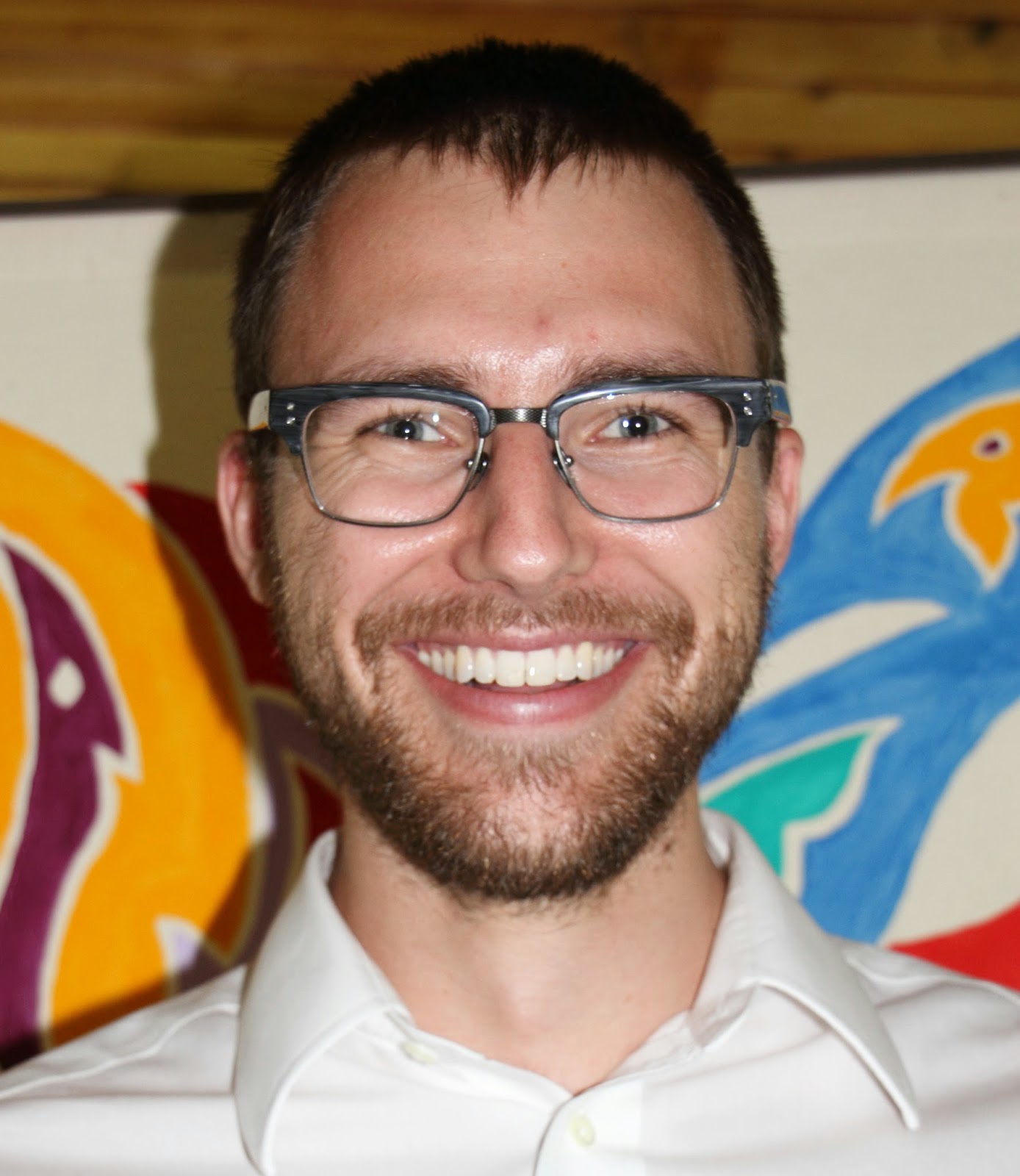
by jboullion | Jul 8, 2014 | Uncategorized
RENEW Wisconsin members re-elected four directors to its governing board in June.
“We are thrilled that these four re-elected board members will continue to serve RENEW Wisconsin as we collectively work towards our newly adopted mission to lead and accelerate the transformation to Wisconsin’s renewable energy future through advocacy education, and collaboration,” said Carl Siegrist, RENEW’s board president.
The four Directors are:
 Brian Hildebrand, administrator with the UW-Madison Center for Sustainability and the Global Environment as well as with the Center for Climatic Research.
Brian Hildebrand, administrator with the UW-Madison Center for Sustainability and the Global Environment as well as with the Center for Climatic Research.
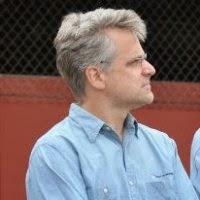
Niels Wolter, is an independent consultant working with prospective owners of large commercial solar electric systems and is the Managing Director of Encon Services International LLC.
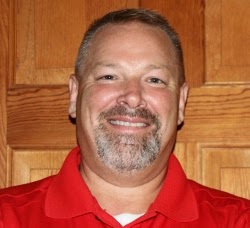 Greg Fritsch, President of Clean Energy North America, a bioenergy and cogeneration project development and consulting company. Greg has been involved in banking, consulting, and energy project development for 25 years.
Greg Fritsch, President of Clean Energy North America, a bioenergy and cogeneration project development and consulting company. Greg has been involved in banking, consulting, and energy project development for 25 years.
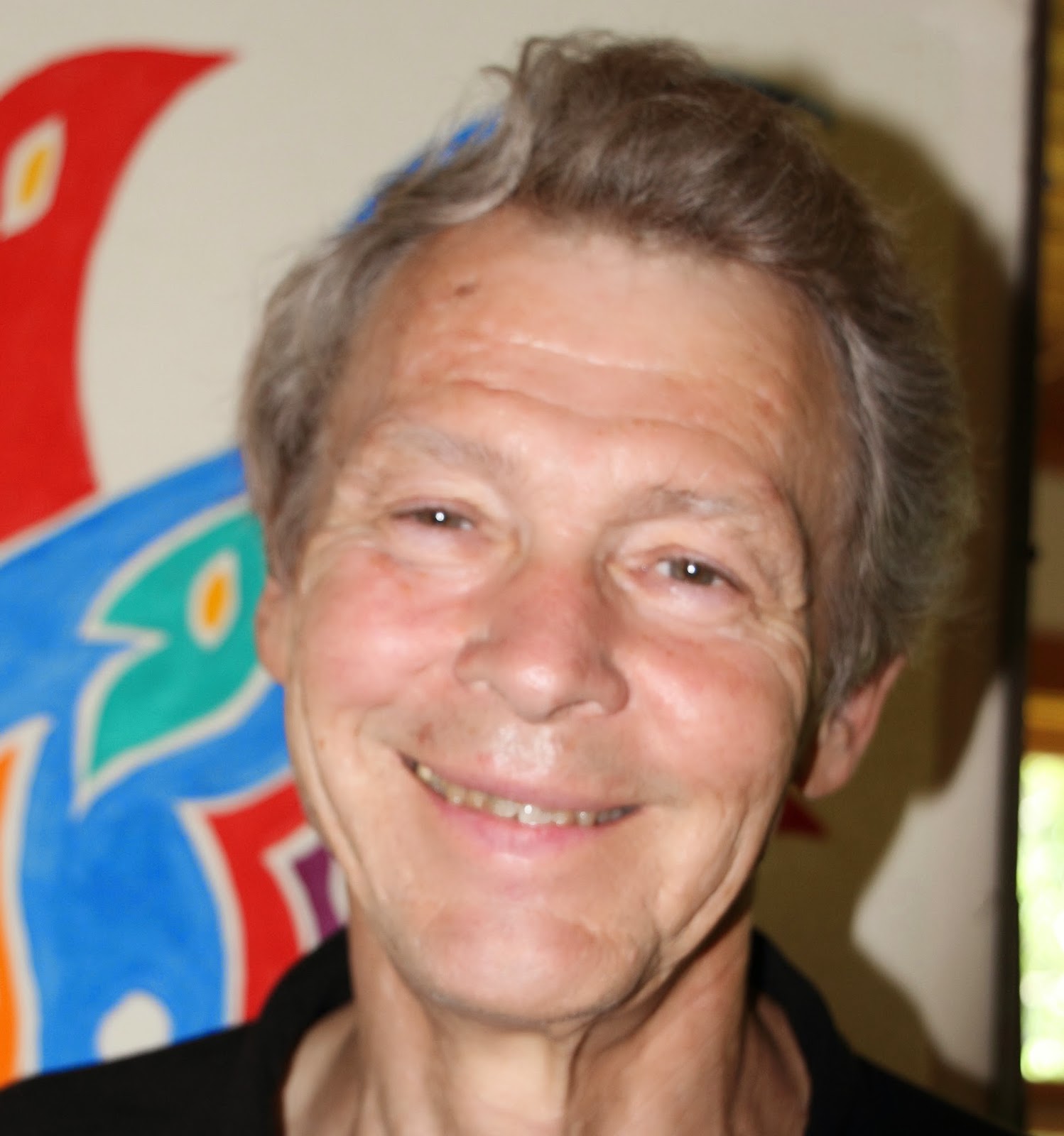 Don Wichert, volunteer advisor to RENEW Wisconsin and independent consultant with Eudai Energy, LLC. Don has been involved with renewable energy in Wisconsin for over 30 years with the State Energy Office, Wisconsin Energy Conservation Corporation, and RENEW Wisconsin as Board Member and interim Executive Director.
Don Wichert, volunteer advisor to RENEW Wisconsin and independent consultant with Eudai Energy, LLC. Don has been involved with renewable energy in Wisconsin for over 30 years with the State Energy Office, Wisconsin Energy Conservation Corporation, and RENEW Wisconsin as Board Member and interim Executive Director.
These directors will serve three-year terms starting in July 2014 and going through June 2017.

 For immediate release
For immediate release 



